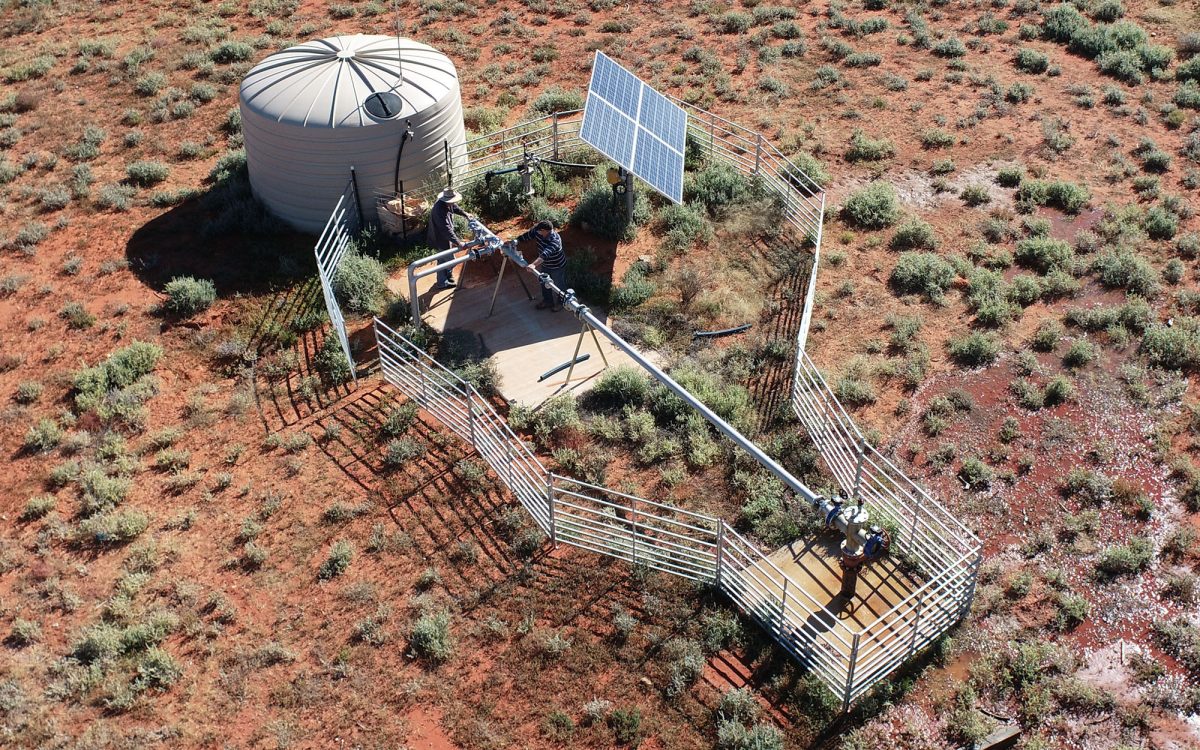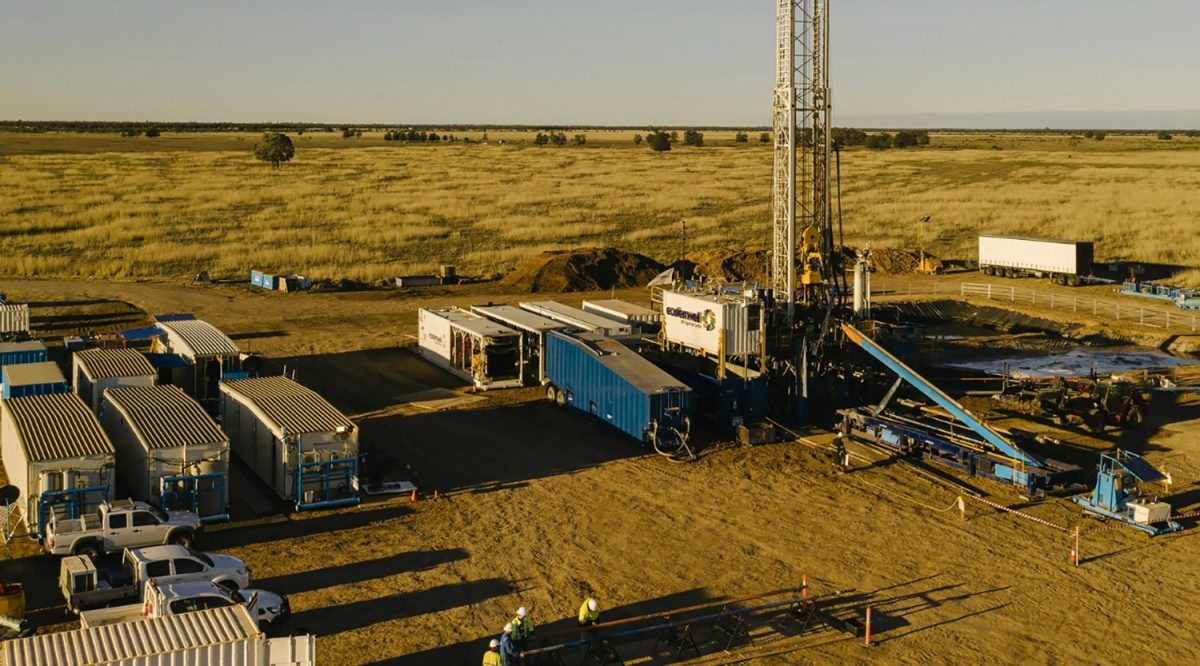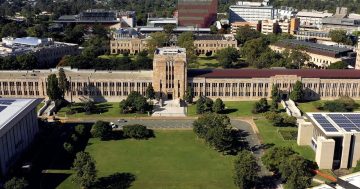
A water bore on Queensland’s Great Artesian Basin. Photo: DCCEEW.
The Queensland Government has banned carbon capture and storage (CCS) projects in the Great Artesian Basin (GAB) in the state.
The ban comes after proposals by Carbon Transport and Storage Corporation (CTSCo) – a subsidiary of mining company Glencore – and others to explore the technology as a way to reduce atmospheric carbon emissions by forcing them underground.
CCS involves injecting carbon gases into the precipice sandstone within the basin. However, a three-year assessment under the Environmental Protection Act 1994 determined that the project is not suitable to proceed due to potential impacts on groundwater resources in the GAB.
The ban, which the State Government says will be legislated, states that activities involving greenhouse gas storage or the injection of a greenhouse gas stream into underground formations within the GAB are not permissible.
It says that while these activities may still be permissible in other parts of the state, they will be subject to rigorous existing assessment and approval processes.
The government says the State Budget will provide up to $32 million to continue its successful bore-capping program, and that it will seek a matching contribution from the Federal Government. This will support the implementation of the Great Artesian Basin and Other Regional Aquifers Water Plan, which requires all artesian stock and domestic bores to have watertight delivery systems by 2032.
Almost 770 bores have been rehabilitated and 450 drains piped, while some 15,000 kilometres of open drains have been decommissioned over the years. This has saved more than 226,000 megalitres of water and contributed to increasing groundwater pressure in the GAB.
Premier Steven Miles said the ban was a great day for Queensland, for the environment, for farmers and for the GAB.
“We will continue to review the safety aspects of greenhouse gas storage in the state to support future generations of Queenslanders and to ensure Queensland’s great natural environment is preserved,” he said.
“I think the GAB’s unique environmental, agricultural, economic and cultural significance is worth protecting.
“It’s why I will be legislating to prohibit carbon capture and storage projects in the GAB here in Queensland.
“I’ve listened to Queenslanders and I am making sure our government is doing what matters for the natural phenomenon that is the Great Artesian Basin.”

CCS injects carbon emissions into the earth’s crust. Photo: Glencore.
At 1.7 million square kilometres, the GAB is one of the largest underground freshwater resources in the world. It extends from under the Gulf of Carpentaria and Cape York in Queensland’s Far North, down through most of Central and southern inland of Queensland, across the northern end of South Australia, and down into the mid-northwest of NSW.
Environment Minister Leanne Linard said protecting Queensland’s iconic and delicate natural environment was in the State Government’s DNA.
“I want to thank the independent regulator for its recent rigorous and science-based assessment of a proposed carbon capture and storage project within the GAB,” she said.
“The regulator’s decision to reject the project acknowledged the basin’s importance and made clear that these types of projects would not be viable in the basin.
“The Miles Government has now taken a leadership decision to bring forward a legislative ban on these types of projects in the GAB to ensure that there are no future attempts at this type of storage in this essential water resource.
“Our decision will remove any doubt and ensure the GAB’s protection for generations to come.”
Queensland Farmers’ Federation (QFF) CEO Jo Sheppard welcomed the announcement, calling it an important step forward for the 180,000 people, 7600 businesses and 120 towns who rely upon the basin every day for their stock and drinking water.
“The unified opposition to CCS in the GAB has remained strong throughout this process and I would like to thank the farmers, agricultural peak bodies and members of parliament … and the many regional mayors who have joined QFF in championing this issue,” Ms Sheppard said.



